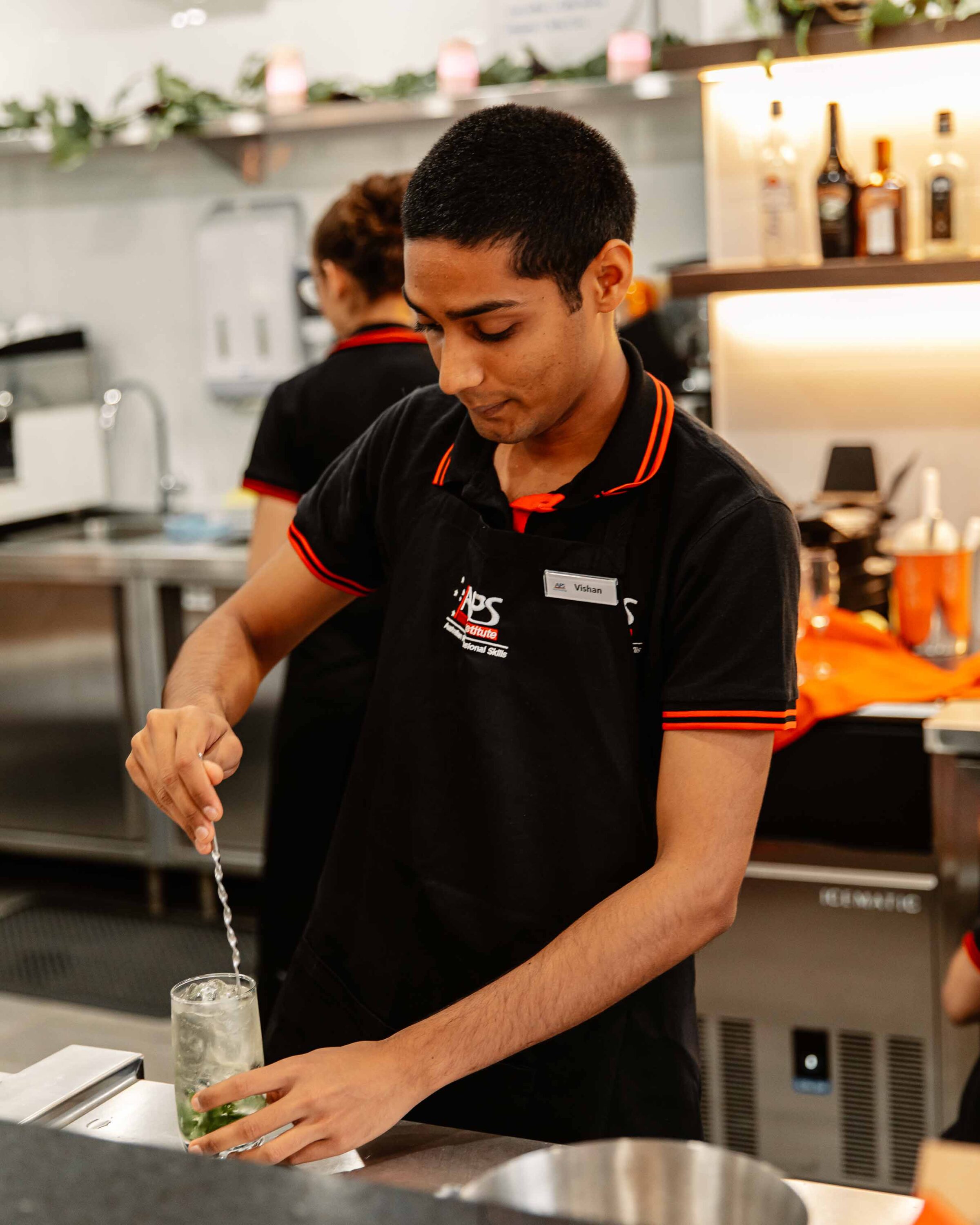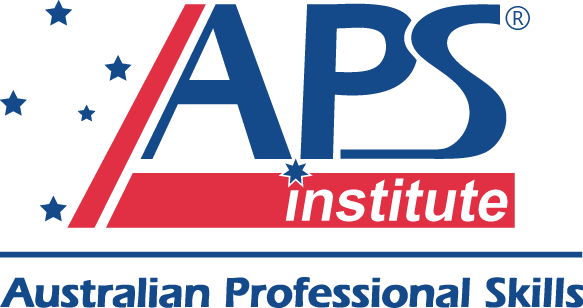
Advanced Diploma of Hospitality Management
|
|
VET National Code: SIT60322CRICOS Course Code: 111114M |
Course Description
The Advanced Diploma of Hospitality Management qualification provides the skills and knowledge for a student to be competent as a senior manager in any hospitality functional area (except kitchen). This individual would analyse, design and execute judgements using wide-ranging technical, creative, conceptual or managerial competencies. Their knowledge base may be specialised or broad and they are often accountable for group outcomes. Work would be undertaken in various hospitality settings, such as restaurants, hotels, catering operations, motels, clubs, pubs, cafes and coffee shops.
Subject areas include all subjects at Diploma level and additional subjects such as:
- Business plans
- Finance and budgeting
- Human resources management
- Marketing management
- Hotel and resort management
On completion of Advanced Diploma of Hospitality Management, employment opportunities become available in a variety of hospitality management functional areas. Students can also continue on to Bachelor Degree programs with Australian Professional Skills Institute’s partnered Higher Education providers – Edith Cowan University.
Course Admission Requirements
Domestic Australian Students
- For direct entry into an Advanced Diploma level course, students must have completed a diploma level qualification in Australia or equivalent.
- Students need to demonstrate they have proficiency in English. If students cannot provide documented proof of their English language proficiency, they will be required to sit for a Language, Literacy and Numeracy test (LLN) before a place can be offered.
International Students
Australian Professional Skills Institute is CRICOS registered (CRICOS Provider Code 03255G). All students must be over 18 years of age before they can commence this course at APSI.
- Students need to demonstrate they have proficiency in English. If students cannot provide documented proof of their English language proficiency, they will be required to sit for a Language, Literacy and Numeracy test (LLN) before a place can be offered.
- International students are required to have a minimum of IELTS test results of 5.5 (academic) with no individual band lower than 5, or achieve an equivalent in other forms of testing that satisfy the Institute’s requirement. If an international student does not have any current IELTS score or any recognised English language result, they are required to take an English language test.
- For direct entry into an Advanced Diploma level course, students must have completed a diploma level qualification in Australia or equivalent.
Unit Code |
Unit Name |
Core Units |
|
| BSBFIN601 | Manage organisational finances |
| BSBOPS601 | Develop and implement business plans |
| SITXCCS016 | Develop and manage quality customer service practices |
| SITXFIN009 | Manage finances within a budget |
| SITXFIN010 | Prepare and monitor budgets |
| SITXFIN011 | Manage physical assets |
| SITXGLC002 | Identify and manage legal risks and comply with law |
| SITXHRM009 | Lead and manage people |
| SITXHRM010 | Recruit, select and induct staff |
| SITXHRM012 | Monitor staff performance |
| SITXMGT004 | Monitor work operations |
| SITXMGT005 | Establish and conduct business relationships |
| SITXMPR014 | Develop and implement marketing strategies |
| SITXWHS008 | Establish and maintain a work health and safety system |
Elective Units |
|
| SITXFSA005 | Use hygienic practices for food safety |
| SITHIND008 | Work effectively in hospitality service |
| SITEEVT023 | Plan in-house events |
| SITHFAB021 | Provide responsible service of alcohol |
| SITHFAB023 | Operate a bar |
| SITHFAB024 | Prepare and serve non-alcoholic beverages |
| SITHFAB025 | Prepare and serve espresso coffee |
| SITHFAB027 | Serve food and beverage |
| SITHFAB030 | Prepare and serve cocktails |
| SITHFAB034 | Provide table service of food and beverage |
| SITHFAB035 | Provide silver service |
| SITXFSA006 | Participate in safe food handling practices |
| SITHIND006 | Source and use information on the hospitality industry |
| SITXHRM008 | Roster Staff |
| SITXCOM010 | Manage conflict |
| BSBTWK501 | Lead diveristy and inclusion |
| SITXWHS005 | Participate in safe work practices |
| SITXCCS015 | Enhance customer service experiences |
| SITXHRM007 | Coach others in job skills |


Flair Bartending
at APSI Hospitality Masterclass
Mode of Delivery
Career Outcome
- Managing a department in a large hospitality enterprise
- Managing a small hospitality enterprise.
Possible job titles include:
- Food and Beverage Manager
- Restaurant Manager
- Event Manager
- Banquets / Functions Manager
- Unit Manager (Catering Operations)
- Motel or Hotel Manager
Course Duration
Student who has completed a Diploma of Hospitality is required to study an additional 26 weeks (6 months) for Advanced Diploma of Hospitality
Entry Requirements
Completion of Year 12 or equivalent.
Timetable
Each day of delivery follows the same structure. The first 2 hours involves trainer lead but student focussed explanation, demonstrations, presentations, questions and answers, student practice. The second 2 hours involves the trainer and student undertaking their assessment tasks on premises (as a learning tool) utilising the specialised training facilities under the required supervision of the trainer.
Students need to attend classes at APSI for a minimum of 20 contact hours per week. Class hours will be scheduled between 9:00am to 5:00pm.
Timetables/Delivery Schedules/Classes are subject to change without prior notice due to availability of training kitchens and teaching staff. Students will be given a timetable during orientation.
Assessment Methods
This course is mainly delivered through institutional and workplace based training. Training may include lectures, presentation, student demonstration, exercises, group work, projects, research, site visit and guest lectures. Delivery will follow a daily ‘delivery and assessment plan’ which contains details on the competency unit element, class activities and resources that are required on a daily basis.
Students are assessed based on continual assessment on case studies, presentation, group work, questions and answers, assignments and workplace assessment. Workplace assessment is achieved through observation and supervisor reports, and includes assignments and projects related to rostering staff and managing quality customer service.
Uniform
There is a dress code for all hospitality students. Students are required to wear the APSI black polo-shirt or a white dress shirt / blouse and black trousers or skirt while attending class. Flat black non-slip covered shoes must be worn at all times. An apron will be provided by Australian Professional Skills Institute for all practical work.
All learners are required to wear in accordance with Perth Hospitality Academy Front of House Dress Code while attending workplace training.
Recognition of Prior Learning
Recognition of Prior Learning (RPL)
RPL is available to anyone who has experience working in a commercial kitchen.
RPL:
- provides an alternative pathway to achieving a qualification without course attendance
- is a consultative process between with the candidate and the assessor to determine whether the candidate has acquired the requisite learning, skills and knowledge to demonstrate that they have achieved the required learning outcomes or performance criteria of the course or qualification, for which the candidate is seeking
- identifies where appropriate additional learning experiences or training gaps are needed to achieve the course or qualification
- is the conduct of an assessment to confirm competency.
APSI has developed a process that promotes holistic and task-based assessment. It focuses on relating assessment activities to actual job tasks. The intention of this model is to streamline and simplify the process of recognising competency.
Prior to RPL, information is provided to the candidate on the assessment process. Specific advice is given to each candidate on how they can demonstrate their competence and what documentary evidence is required to support their application. Each industry has unique documents that can provide evidence of experience and competence.
The candidate is required to provide adequate information prior to, throughout and after a training and assessment experience. The assessor, in this process, needs to be fully aware of the needs of the candidate and help them identify relevant workplace personnel who can confirm the candidate’s competency.
The focus of the APSI streamlined holistic assessment process is to focus on demonstrated skills and knowledge and not to rely purely on documentary evidence as the main source of evidence.
Some examples of documentary evidence that can support the process include:
- licences such as First Aid, RSA
- CV or work history with details of job role and responsibilities
- previous qualifications from overseas and Australia
- certificates and records of results or assessments completed with other RTO’s
- photographs of work undertaken
- samples of related project work
- diaries of tasks performed
- task sheets/job sheets/logbooks
- site training records
- pay slips / employment contracts / job descriptions
- memberships of relevant professional associations
- references/letters/third party reports from previous employers/supervisors
- industry awards
- performance appraisals
Articulation
The followings are articulation details with Edith Cowan University
Advanced Diploma of Business BSB60207
Upon successful completion of the Advanced Diploma of Business only, students can gain advanced standing of up to 9 units (135 credit points) toward the Bachelor of Business (G95) single major in Marketing at ECU as follows:
| Advanced Diploma modules | ECU Units |
| BSBMGK603B Manage the marketing processBSBMKG608A Develop organisational marketing objectives
BSBMKG609A Develop a marketing Plan |
MKT3601 Marketing Strategy |
| BSBMKG605B Evaluate international marketing opportunitiesBSBMKG606B Manage international marketing programs | MKT3120 International Marketing |
| BSBMKG607B Manage market research | BUS3100 Business Research Practice |
4 X Unspecified Level 1 Electives
2 X Unspecified Level 2 Electives
Students who select any other single major (excluding Accounting) will receive the 3 x named units in the table above (subject to completion of all the relevant modules), plus 4 x L1E and 1 x L2E. A total of 8 units (120 credit points).
Student who select an Accounting major will receive the 3 x named units in the table above (subject to completion of all the relevant modules), plus 3 x L1E. A total of 6 units (90 credit points).
Diploma of Business BSB50207 and Advanced Diploma of Business BSB60207
Upon successful completion of the Advanced Diploma of Business BSB50207 and Advanced Diploma of Business BSB60207, students can gain advanced standing of up to 12 units (180 credit points) toward the Bachelor of Business (G95) single major in Marketing at ECU as follows:
| Modules completed as part of Diploma and Advanced Diploma | ECU units |
| BSBMKG515A Conduct a marketing auditBSBMKG501B Identify and evaluate marketing opportunities
BSBMKG502B Establish and adjust the marketing mix |
MKT1600 Marketing principles & Practices |
| BSBMGK508A Plan direct marketing activitiesBSBMGK509A Implement and monitor direct marketing activities
BSBMKG510B Plan e-marketing communications BSBMGK514A Implement and monitor marketing activities BSBMKG523A Design and develop an integrated marketing communication plan |
MKT2605 Promotional Marketing |
| BSBMKG506B Plan market researchBSBMKG507A Interpret market trends and developments
Or BSBMKG607B Manage market research |
BUS3100 Business Research Practice |
| BSBPMG522A Undertake project work | MAN3612 Project Management |
| BSBMGK603B Manage the marketing processBSBMKG608A Develop organisational marketing objectives
BSBMKG609A Develop a marketing Plan |
MKT3601 Marketing Strategy |
| BSBMKG605B Evaluate international marketing opportunitiesBSBMKG606B Manage international marketing programs | MKT3120 International Marketing |
Plus 4 x L1E and 2 x L2E
Students who choose to take an accounting major will receive up to 7 units (105 credit points) of advanced standing
Full details can be viewed on Edith Cowan University’s website.
http://apps.wcms.ecu.edu.au/advanced-standing/course-search
Accreditation
Study Pathway
Employment Skills
This qualification prepares a person to select, adapt and transfer skills to a new environment and to provide technical advice and some leadership in resolution of specific problems. This would be applied across a range of roles in a variety of contexts with some complexity in the extent and choice of options available.
(Source: AQF Implementation Handbook 2007)
Location of Delivery
Simulated learning – Wellington Fair and East Perth Function Centre
Workplace Training – at other hospitality venues approved by Australian Professional Skills Institute’s workplace assessor
Disclaimer
The information contained on this website is current at the time of publishing. Australian Professional Skills Institute reserves the right to change the admission requirements, fees, location of delivery and units of competency whenever necessary. Please contact us for the most current information.


